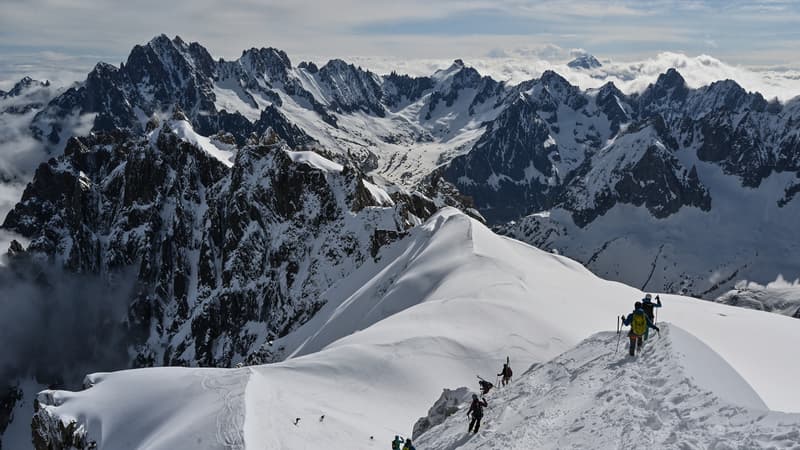The French Alps could host the Winter Olympic Games in 2030. The regions of Auvergne-Rhône-Alpes (Aura) and Provence-Alpes-Côte d’Azur (Paca) lead the territory’s file for the organization of the Olympic Games. 2030, when the Summer Olympic Games will soon open in Paris. But, on the ground, the candidacy of the French Alps is not necessarily unanimous.
Laurent Wauquiez and Renaud Muselier, the presidents of the two regions, promise: they will be “sober games” and, above all, an “incredible opportunity” for the affected territories. Their application is due on November 7 ahead of a major oral hearing before the International Olympic Committee (IOC) on November 21. The decision is expected to be made in 2024; Sweden and Switzerland are also candidates.
“This is still a bit like Russian roulette” in the snow, dares, doubtfully, Catherine Dufour, a resident of Chamonix born into a family closely linked to the Winter Olympic Games, since her grandfather, her brother and her cousin took turns participating.
The mayor of Chamonix, Éric Fournier, is categorical: “If we stay in the old model, there is definitely no place.” But the Games are possible if “we work with existing sites, which will have a real future and an economy of resources.”
“Sustainable Olympics”
Laurent Wauquiez rightly promised to “rely on existing infrastructure” for “the first sustainable Olympics.” Because the region has a rich Olympic history: the first Winter Games were hosted in Chamonix, almost 100 years ago, then in Grenoble in 1968 and in Albertville in 1992. La Plagne, a resort located at 1,400 meters above sea level, hopes to reuse its bobsleigh track, the most expensive equipment at the Albertville Olympic Games.
“This is the example to follow,” explains Mayor Jean-Luc Boch, very enthusiastic about the Alpine candidacy.
A vision shared by Benjamin Sauze, director of a Lyon-based holiday company in Chamonix: “Obviously, it consumes energy, but we still have to continue organizing sporting events in the region.”
The issue is crucial in the Alps, amid questions about the future of its economic model. According to Domaines Skiables de France, 120,000 jobs depend on winter sports. And this week a first summit “for a sustainable mountain” was organized in Chamonix to think about adaptation to climate change. Renaud Muselier, president of the Paca region, is confident: “according to studies we will have snow at least until 2050,” he told the press this week.
“Snow will be less and less available,” corrects Thierry Lebel, hydroclimatologist. Last December, the Grand-Bornand resort (Haute Savoie), at 1,300 meters above sea level, had to transport 12,000 m3 of snow by truck to host a stage of the Biathlon World Cup.
artificial snow
Without the use of artificial snow, 53% of European resorts would be at “very high” risk of lack of snow if the global temperature increase were 2°C, according to a study published in August in the journal Nature Climate Change. .
The 2030 Olympic Games project “is the tip of the iceberg of all the problems we currently face” related to “all tourism” and “all alpine skiing,” considers Vincent Neirinck of the Mountain Wilderness Association. And “this contributes to a headlong race that is not acceptable.” “Regardless of what they promise us in each edition, the Olympic Games have never demonstrated their safety,” he emphasizes, pointing out the completely artificial snow at the Beijing Games which, according to him, contributed “to trivializing the snow snake in the middle of the desert”.
Source: BFM TV


